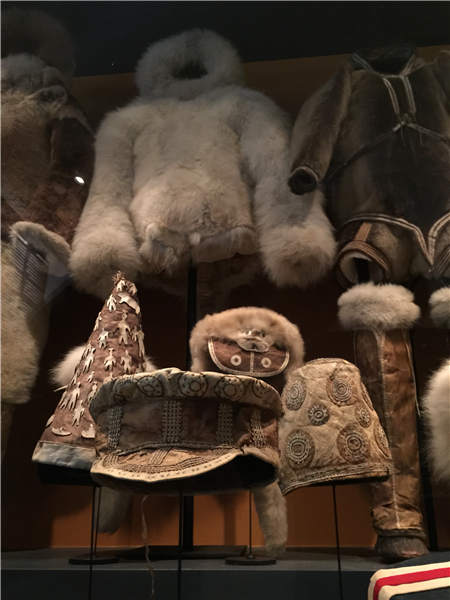Arctic life
 |
|
The Greenland National Museum showcases the indigenous culture with exhibits of colorful native clothing and other made-by-hand necessities. |
The fishing industry dominates business here, and the education system is well-respected, including vocational training for ships' officers. There is a 10-year waiting list for housing-perhaps one reason going to sea is attractive.
A former Danish colony, Denmark granted home rule to the huge island in 1979.
In 2008, Greenland voters approved the Self-Government Act, which transferred more power from Copenhagen to Nuuk, though the country remains financially dependent on Denmark. About 10 percent of the country's population is Danish-a bit higher in Nuuk, where many young Danes come after university for a year or two.
Having arrived by cruise ship, we are particularly aware of Nuuk's geography.
The world's northernmost capital-besting Rekjavyk, Iceland, by a few kilometers-Nuuk is perched on the southwestern coast of Greenland, about 10 km from the Labrador Sea and 240 km south of the Arctic Circle. Polar bears are unlikely visitors, though everybody has a story about seeing one.
For tourists, there is plenty to see.
Lonely Planet has declared Greenland to be one of the top 10 destinations for 2016, and Nuuk is a major reason: "The heart of a nation, Greenland's largest city and capital is fueled on fresh air, strong coffee and diverse personalities."
Must-sees include the mummies at the Greenland National Museum, which also offers insights into the indigenous culture with exhibits of colorful native clothing and other made-by-hand necessities, from kayaks to hunting knives and spears.














